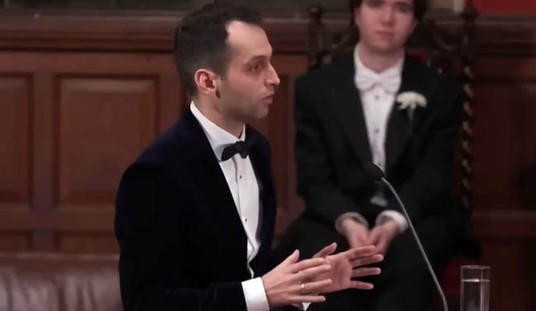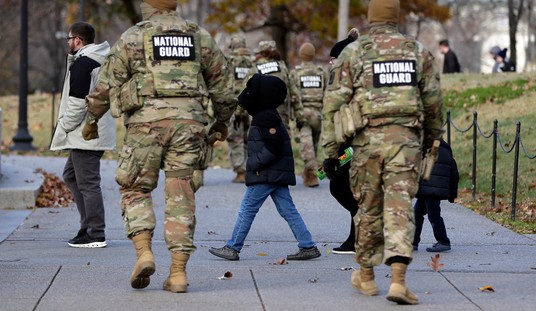The inevitable follow-up to yesterday’s “European paralysis is leading to a Libyan stalemate” post.
France and Italy said on Wednesday that they would join Britain in sending some liaison officers to support the rebel army in Libya, in what military analysts said was a sign that there will be no quick and easy end to the war in Libya…
But as much as the new Qaddafi tactics, divisions within NATO seem to be harming the strategy, said Robin Niblett, the director of Chatham House, the Royal Institute of International Affairs in London. Only six of the 28 member countries are participating in the air strikes, and France and Britain are doing half of them while Denmark, Norway, Belgium and Canada are doing the rest…
“If I were him, I would look at European disagreements and take heart from them, especially when the opposition appears so weak,” Mr. Niblett said. Colonel Qaddafi “senses there is a gap between means and ends,” he added. “He can look at divisions among members of NATO and feel he can be part of a political solution, because in the end he may feel there is not sufficient cohesion to follow the strategy through to its end,” which is his ouster…
NATO will never be what it was, Mr. Valasek said. “NATO will become more of a transactional place in the future, so as in Libya, more often than not there will be coalitions of the willing, with NATO support.”
Is that really true, that NATO will “never be what it was”? Or is it more the case that NATO was never worth much in the first place without America in the lead role, a demonstration of which we’re seeing now? More from ace military analyst Anthony Cordesman, who reached for a word to describe NATO’s efforts and came up with a winner:
[T]he farce is still with us. A weak, divided, poorly led, and badly equipped and supplied set of rebel forces can only hang on with the present level of air support. Yesterday’s announcement that British and French military advisors are going to help is not going to alter that situation quickly. It will take months more – at a minimum – to properly train and equip them and it will take a radical shift in rebel leadership to give them meaningful unity and discipline.
In the interim an enduring war of attrition will turn a minor humanitarian crisis into a major one – driven by the reality that Libya has to import over 75% of its food, and the Qaddafi regime was so corrupt and self-serving that the CIA estimates that 30% of the population was unemployed, and one-third was at the poverty line before the crisis began…
France, Britain, the US and other participating members of the Coalition need to shift to the kind of bombing campaign that targets and hunts down Qaddafi’s military and security forces in their bases and as they move – as long before they engage rebel forces as possible. Qaddafi, his extended family, and his key supporters need to be targeted for their attacks on Libyan civilians, even if they are collocated in civilian areas. They need to be confronted with the choice between exile or death, and bombing needs to be intense enough so it is clear to them that they must make a choice as soon as possible.
This kind of operation cannot be “surgical’ – if “surgical” now means minimizing bloodshed regardless of whether the patient dies. Hard, and sometimes brutal, choices need to be made between limited civilian casualties and collateral damage during the decisive use of force and an open-ended war of attrition that will produce far higher cumulative civilian casualties and collateral damage.
Either NATO pulls out and endures an immortal humiliation at the hands of a tinpot dictator, possibly replete with the sort of humanitarian catastrophe in Benghazi that led the west to intervene in the first place, or they escalate. Cordesman’s idea of escalation is a more aggressive bombing campaign, even in urban areas, even if it means taking out civilians in the course of targeting Qaddafi’s goons. Other analysts have ideas that are … more ambitious, and grounded in the hope that (a) this won’t/can’t become another Somalia and (b) Qaddafi (or his hired men) will run screaming once he’s confronted with western infantry. What the back-up plan is if Europe sends in troops and Qaddafi reacts by digging in, I have no idea. A question, though: Given the tumult in Syria, Bahrain, and Yemen, and in light of the power struggle in Egypt, how much does the “Arab Street” still care about what happens in Libya? Remember that Obama reportedly ordered the intervention because it was “the greatest opportunity to realign our interests and our values,” proof positive after decades of supporting autocrats like Mubarak that we were on the side of the people against the monsters who ruled them. But if Assad hangs on and ends up killing thousands; if Bahrain, with Saudi help, crushes its Shiite majority; if Yemen falls to jihadists; and if the Egyptian army and Muslim Brotherhood unite to form yet another sham democracy, who in the region will be left to care whether NATO is still fighting the good fight against Qaddafi? He’s always been a sideshow to Middle Eastern politics anyway. If he ends up hanging from a lamppost while sectarian war and new autocracies break out everywhere else, no one in the wider Arab world will give a rip. This is, to put it mildly, an odd basket in which to place the few eggs we have left.
Here’s grassroots favorite John Bolton daring to use the word Q-word and backing up Cordesman’s point about the need for more aggressive air action towards the regime. As you’ve probably seen elsewhere today, among Qaddafi’s latest victims is Tim Hetherington, a war photographer for Vanity Fair and the director of the acclaimed Afghanistan documentary “Restrepo,” and Chris Hondros, a photographer for Getty. Here’s Hetherington’s final tweet, grim evidence of how bad the fighting is right now in Misrata, where both men were killed, and how little NATO’s presence is felt there. RIP.









Join the conversation as a VIP Member